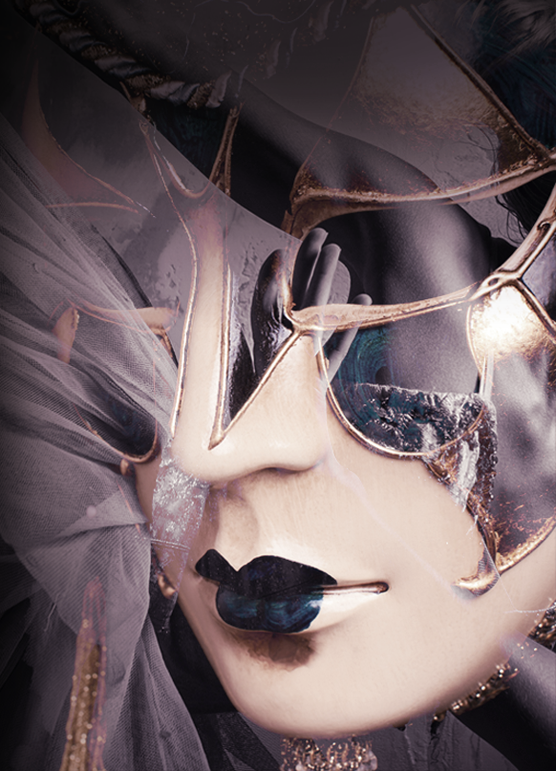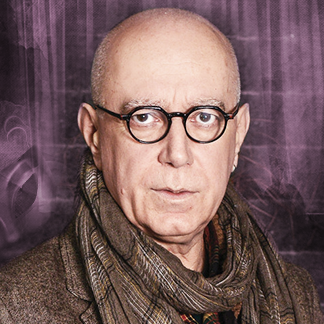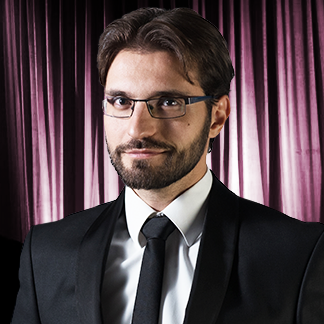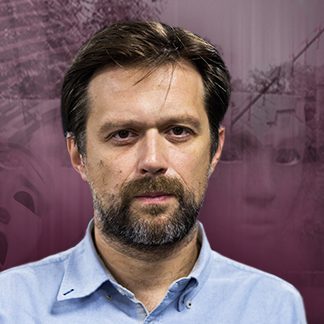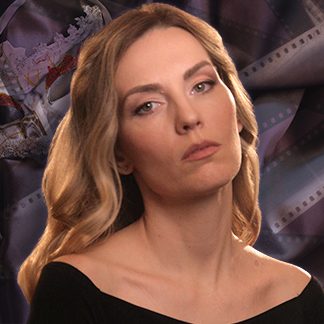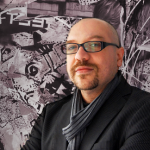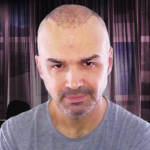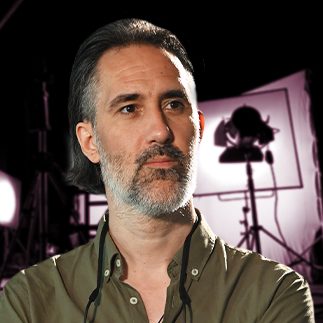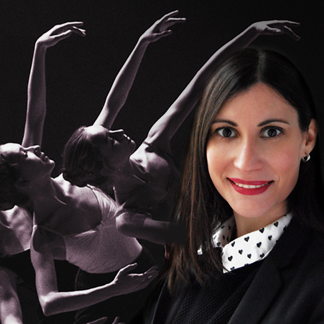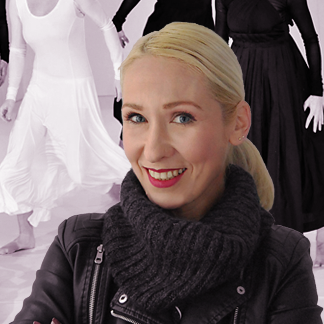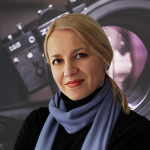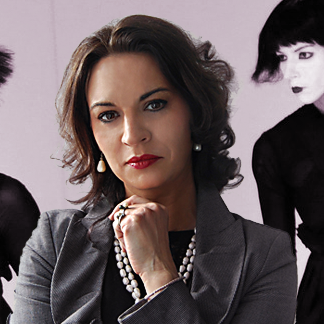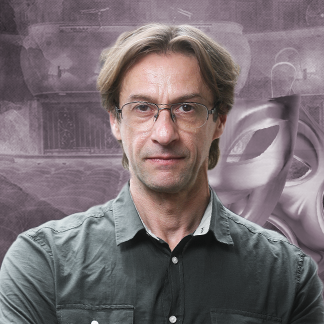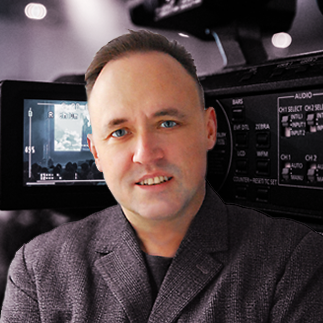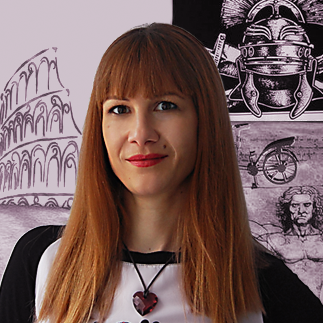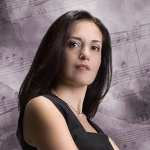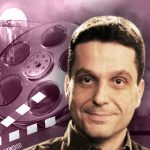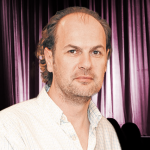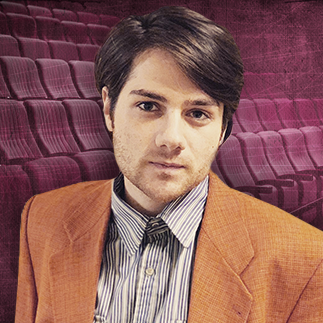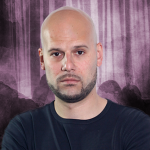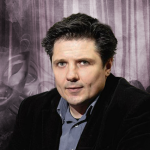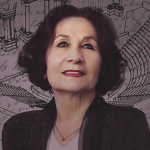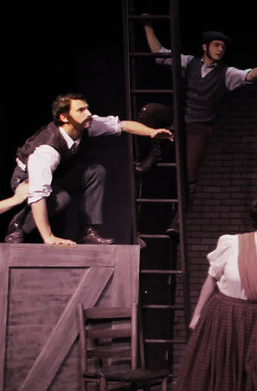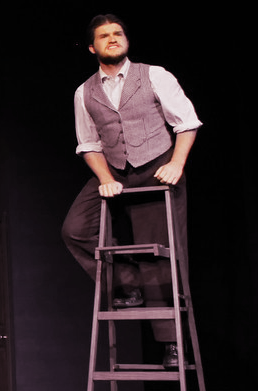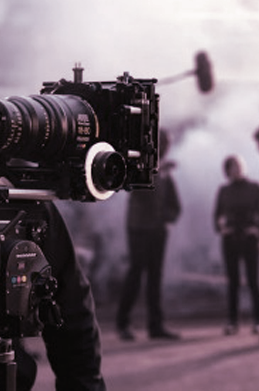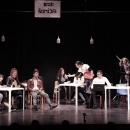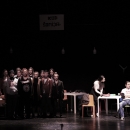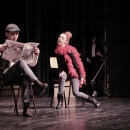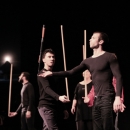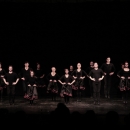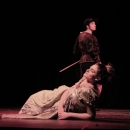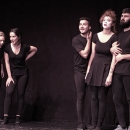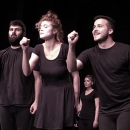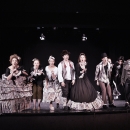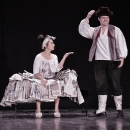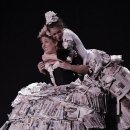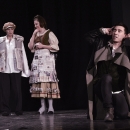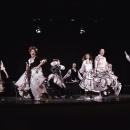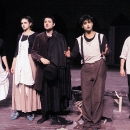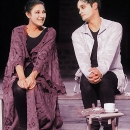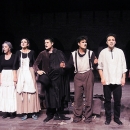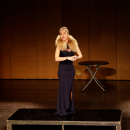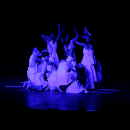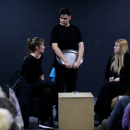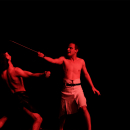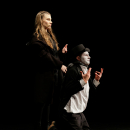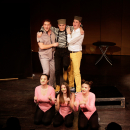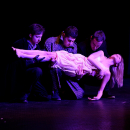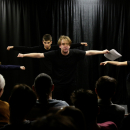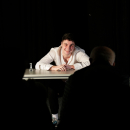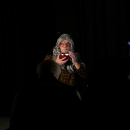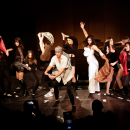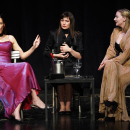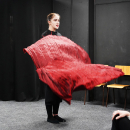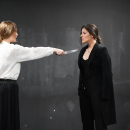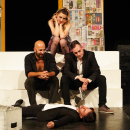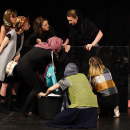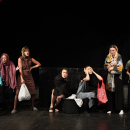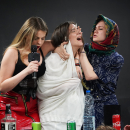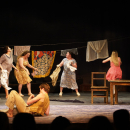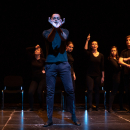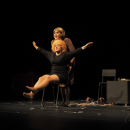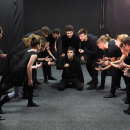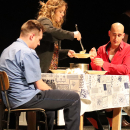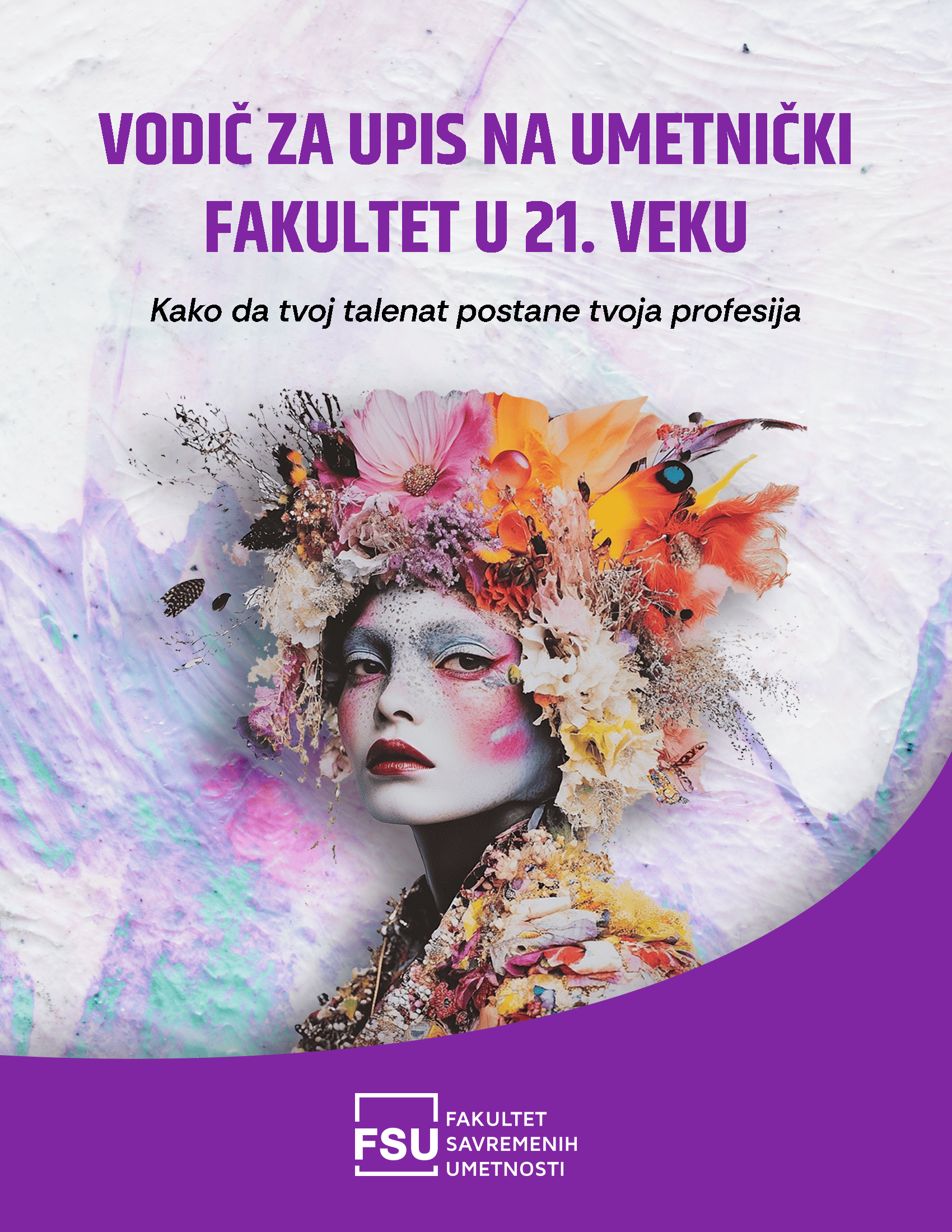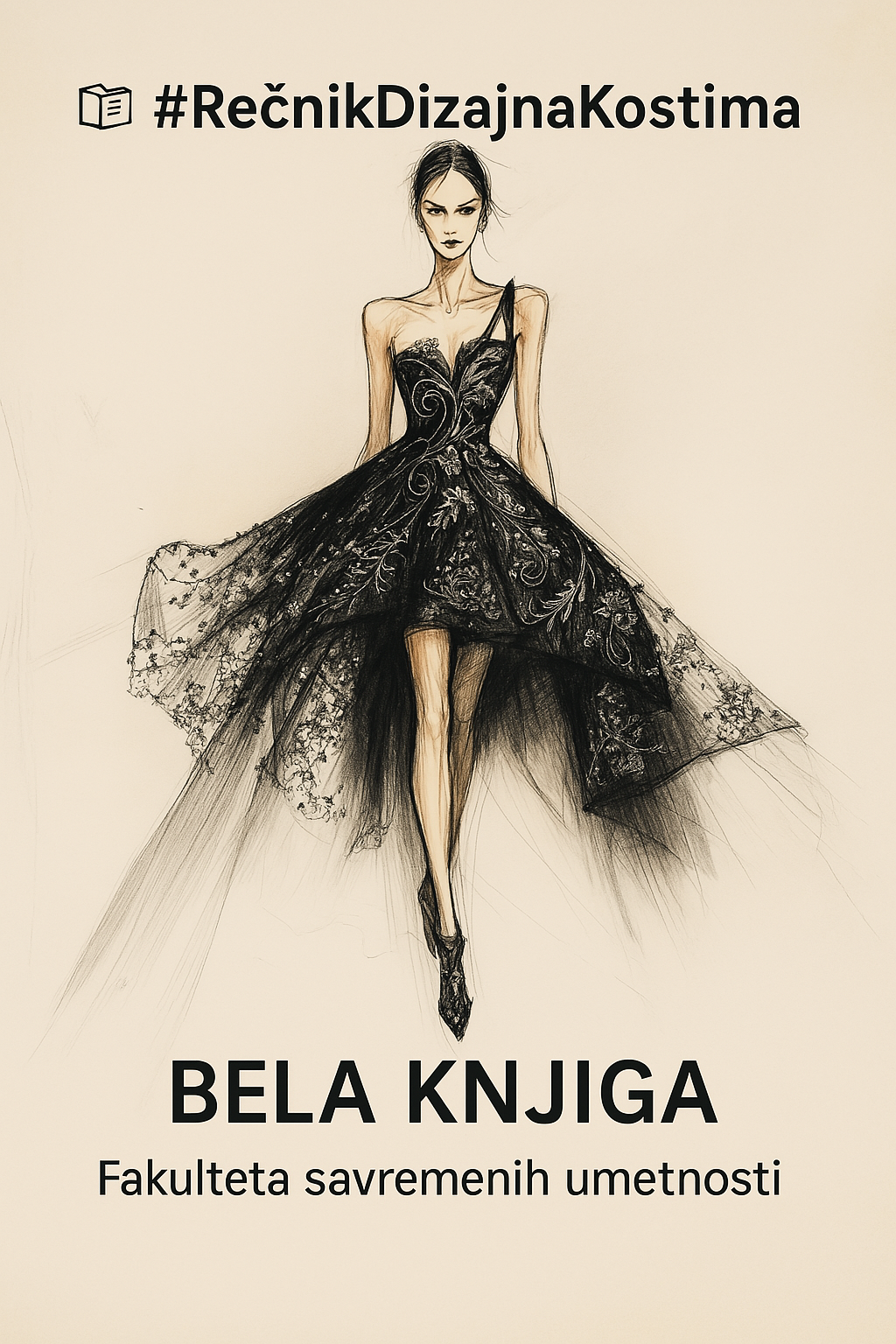What you will learn during the undergraduae studies of acting
The curriculum of the Dramatic Arts – Acting department has been designed in accordance with the modern tendencies in the field and with the goal of creating artists ready to meet all requirements of television, film and theater work.
See what competencies you will acquire through studying acting at the Faculty of Contemporary Arts:
ACTING
1st year
– recognizing the basic elements of acting (plot, relationship, objective)
– conscious use of acting devices (body, voice, speech, singing, movement, gesture, facial expression, mobility, expressivity)
– free and inventive creation of entertaining materials (children’s program, circuses, advertisements, interviews, variety shows, etc.)
– application of learnt elements in setting nonverbal scenes (or with minimal speech involved) in drama and comedy form
– ability to understand and analyze dramatic text
– ability of organic connection between speech and physical action
– relationship to a partner through elements of conflict
– applying various acting devices in drama and comedy
– skills of implementing acting in entertainment programs
2nd year
– ability to analyze a dramatics character
– ability to apply external devices and skills required for transformation (imitatively, from the outside in)
– ability to approach the character through identification and internal transformation
– ability to independently, even critically, interpret a dramatic character through own attitude (defending, attacking)
– ability to do a character study
– applying all skills of external and internal transformation and imitation
– acting devices in drama and comedy
3rd year
– understanding genre and complex technical requirements in acting devices
– skill of speaking lines through difficult physical movements
– work with complex requirements of hexameter, blank verse, alexandrine
– independent implementation of skills through analyzing and setting scenes from different genres
– introducing acrobatic elements of renaissance comedy and commedia dell’arte, singing segments of epic theater
– composing the part through genre requirement
STAGE SPEECH
1st year
– proper breathing
– articulation (proper pronunciation of phonemes)
– grammatical accentuation (pronunciation and marking of accents)
– literary accentuation (clarity of thought – logical accent)
– diction (tempo, rhythm, pause, intonation, intensity…)
– art of narrating and rhetoric technique
2nd year
– theater language
a) literary Serbian theater language (Church Slavonic, Russian Church Slavonic, Slavonic-Serbian and vernacular in Serbian literature)
b) adopting dialecting articulation (Šumadian, Voivodinian, Dubrovnik, Bosnian, Montenegrin, Niš-Lekovac and Vranje speech)
c) adopting jargon speech (Russian, Roma, Hungarian, Aromanian and Albanian)
– rhetoric (military, political, judicial, philosophical, solemn and spiritual rhetoric)
3rd year
– versification (the art of speaking verse)
a) children’s poetry
b) sonnet
c) epic poetry
d) free verse
e) verse in literary translations
f) alexandrine
g) dactylic hexameter
h) verse in dramatic literature
VOICE TECHNIQUE
1st year
– finding the natural voice
– breathing technique
– vocal resonation
– conscious use of natural voice
– voice projection
– implementation in speaking, acting and diction tasks
2nd year
– developing vocal dynamics
– crying
– laughter
– scream
– preparation for stage singing
3rd year
– conscious control and use of vocal apparatus
– musical use of the voice
– solo i and group singing
– singing genres
STAGE MOVEMENT
1st year
– mindful use of nonverbal communication
– liberation from fears and anxiety
– awakening the sense of self and the body’s abilities
– awareness of own body in motion
– relation with a partner in space
– mastering the basics of dramatic play through movement
2nd year
– biomechanics (establishing balance)
– imaginary partner
– spatial relations
3rd year
– interdisciplinary theatrical experiment
STAGE COMBAT AND ACROBATICS
1st year
– physical and mental strengthening
– plasticity, coordination and strength of the body
– acrobatics and martial arts applied to acting, stage and partner who shall be safe from injury, while maintaining believability of movement, conflict and relations
– shooting (course)
2nd year
– skillful, safe and convincing playing of fight scenes and acrobatic choreography
– skillful, safe and convincing playing of fight scenes and acrobatic choreography connected with speech and singing
– technique of climbing on shoulders and forming a pyramid
– jumps
– handspring
– headsprings
– elements of combat in standing position
– weapons – attack and defense
– application of throwing in freestyle combat
– fencing
– swimming (course)
3rd year
– horse riding (course)
STAGE DANCE
1st year
– movement coordination
– articulated, mindful body
– discovering own bodily expression through movement and dance
– basics of classical ballet
– modern dances
– historical and social dances
2nd year
– solidifying the basics of classical ballet, modern dance and various choreographies of historical social dances using more complex elements and combining movement and choreography (waltz, quadrille, polka, galop, tarantella, minuet, tango, salsa…)
3rd year
– sublimated knowledge of various domains of stage dance
ACTING IN FRONT OF A CAMERA
FILM HISTORY
Introduction to aesthetic, technological and industrial development of film – from early attempts at filming in the 19th century, the invention of film, its early development, with a special emphasis on the development of the narrative structure of film, through expressionism, impressionism, Soviet montage theory and transition to sound film, genres and the Hollywood studio system, to neorealism, French New Wave and numerous directors from the history of world cinema.
FILM PRODUCTION
The development of film industry worldwide, especially in Hollywood since the beginning of the competition between film and TV, with production changes introduced by new technology, the role of talent agents and the latest developments in film production.
FILM ART
Studying the history of Serbian film, especially postwar cinema. The development of the national cinema from the 1950s to present day.
HISTORY OF GLOBAL AND NATIONAL DRAMA AND THEATER
– students acquire knowledge from global and national drama and theater
PSYCHOLOGY
– mastering psychological concepts and theories
– ability of creating a character based on understanding the concept and theories of personality
– developing the psychosomatic unity of artistic expression
ENGLISH LANGUAGE
– students will be able to communicate the basic information about themselves, their interests, the place where they live, everyday activities, their studies
– they will be able to use the five basic verb forms, as well as understand texts of medium difficulty from various expert areas
ITALAN LANGUAGE
– first semester students are expected to master the phonetic and morphological system of the Italian language and to adopt the majority of the general vocabulary at A1 level of the Common European Framework of Reference for Languages
– at the end of the first year, the students should have mastered the phonetic and morphological system of the Italian language and to have adopted the basic and general vocabulary at A1 level of Common European Framework of Reference for Languages
MARKETING BASICS
(elective subject)
– acquiring practical skills such as teamwork, negotiation skill, business plan preparation…

